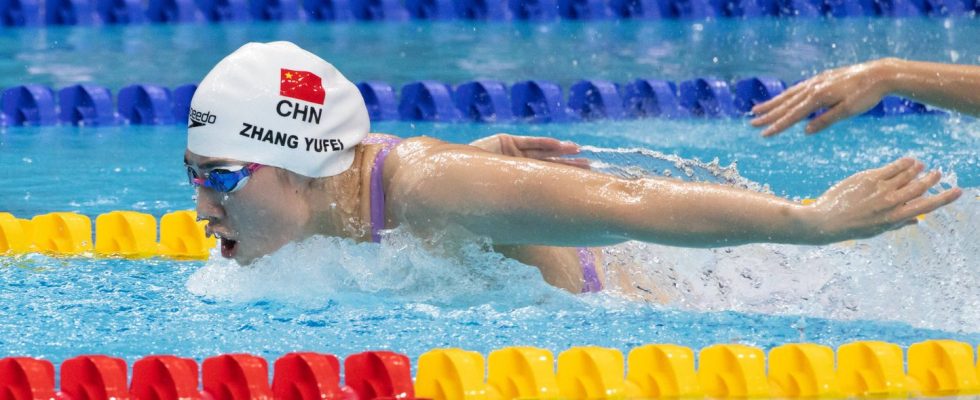“Sun Yang, he pisses purple…” It’s difficult not to think of Camille Lacourt’s legendary phrase when taking a look at the information from New York Times and the German channel ARD, prior to the imminent broadcast of an investigation into a vast doping scandal in which Chinese swimming is allegedly involved. A total of 23 of China’s top swimmers reportedly tested positive in 2021. The country’s anti-doping agency turned a blind eye, and the World Anti-Doping Agency was aware of the matter. As a result, some swimmers were able to participate in the Tokyo Olympics without being worried.
Among those potentially involved, Wang Shun, Olympic champion in the 200m medley and main rival of Léon Marchand over the distance, or even Zhang Yufei, the Olympic champion in the 200m butterfly. In short, beautiful people.
Contamination with a prohibited substance through food
The basis of the investigation are documents from an investigation report by the Chinese National Anti-Doping Agency (Chinada) into a competition dating from January 2021 in Shijiazhuang. The ARD channel calls them the “China Files”. In its report, the Chinese Ministry of Public Security suspects a cover-up of positive tests for trimetazidine, banned by WADA since 2014 and the effectiveness of which is not unanimous among scientists. Sun Yang was suspended for three months for using this substance. More recently, this product was publicized by the Kamila Valieva affair, the young Russian skater.
To justify these cases of mass doping, China cited food contamination. All the athletes involved were eating in a kitchen at the Shijiazhuang hotel where they were based. Traces of trimetazidine were found two months later in the extractor hood, on the spice containers and in the sewers.
WADA was aware
China would have transmitted this information in WADA’s referencing software, called ADAMS, while alerting the agency by letter. WADA confirms that it was made aware in 2021. “WADA ultimately concluded that it was unable to refute the possibility that contamination was the cause of the positive trimetazidine controls and that this was compatible with the analytical data in the file. […] WADA also concluded that the athletes would be considered to have committed no fault or negligence. As such, and based on advice from external counsel, WADA considered that an appeal was not warranted. »

